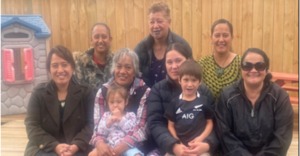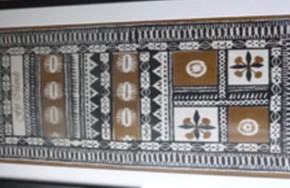
Established in 2003, the TLRI is a government fund for collaborative research that aligns with current and future priorities for teaching and learning in early childhood education, school and tertiary sectors. It aims to create new knowledge to complement and address gaps in exiting knowledge, build research capabilities and lead to an improvement in outcomes for learners in Aotearoa New Zealand.
At the bottom of this page you can find the Latest Research funded through the TLRI Open Pathway.
Kaupapa Māori research and Pacific-focussed TLRI research may also be of relevance or interest. Explore our archive of All projects funded by TLRI, or search keywords at the top of the page.
Ngā paearu huarahi Tuwhera│Open pathway criteria
All TLRI research prior to 2020 was funded through the Open pathway. All research that does not use kaupapa Māori methodologies through the Whatua tū aka pathway is funded through the Open pathway.
Research applicants to the Open pathway have the choice of being assessed with Pacific Research criteria that are underpinned by Pacific values, utilise Pacific research methodologies, engage reciprocally with Pacific tamariki/rangatahi and communities, and privilege Pacific worldviews, languages, cultures, pedagogies, and knowledge systems.
Te hua rautaki me te hua ritenga │Strategic and practice value
These criteria assess the extent to which the project:
- addresses an area of strategic importance to education in New Zealand.
- provides a clear rationale for the project including links to relevant New Zealand and international research.
- has the potential to inform teacher practice, have a positive impact on learning, and lead to improvements in outcomes for learners.
- poses a research question(s) that will increase knowledge and is (are) appropriate for the proposed scope and design of the project.
Te hua rangahau │Research value
These criteria assess the extent to which the project has:
- a research design, data collection methods and approach to analysis that will address the research question(s) and enable substantive and robust findings.
- a partnership in place that has a clear rationale and is consistent with the intent of the TLRI.
- a project team that is led by a principal investigator(s) with relevant experience in leading similar research projects and includes members with appropriate research and practice experience.
Latest Open Pathway research

Search Projects
Recently Published
The Open Pathway is for educational researchers seeking funding who do not meet our Whatua Tū Aka criteria or Pacific criteria for funding.
In 2024, the TLRI fund has prioritised funding for the following proposals:
- Research on topics of strategic importance within the early childhood education (ECE), primary and/or secondary school sectors.
- Research that focuses on success for Māori learners as Māori in any sector.
- Research that focuses on success for Pacific learners as Pacific in any sector.
Please note that expressions of interest and Full Proposals are now closed for 2024, with announcement of recipients expected in late 2024. Applications will reopen in early 2025.
You can find recent examples of Open pathway research funded through the TLRI at the bottom of this page.
On this page:
Open pathway eligibility for funding
To be eligible for TLRI funding, proposals need to come from partnerships involving education practitioners and researchers. Practitiners may include, but are not limited to: teachers and kaiako in kindergartens, early childhood centres, kōhanga reo, and Pacific language nests; teachers in kura, primary, intermediate, and secondary schools; and lecturers and tutors working in universities, wānanga, polytechnics, and private training establishments. Students and ākonga; families and whānau; hapū, iwi and communities may also be part of the partnership.
Researcher–practitioner partnerships should be integral to the design of the project. There needs to be a focus on individuals in the team using their collective expertise, and on all team members having the opportunity to learn from each other, rather than on explicitly developing the research skills of the practitioner members of the project team. In this partnership, practitioners might take the role of advisors, data gatherers, informants, etc. and not necessarily be integral to all aspects of the thinking inside the partnership.
The TLRI is open to researchers working in organisations (e.g., universities or other tertiary institutions) or independently. The TLRI will not enter into contracts with individuals, requiring that contracts be with incorporated societies or similar legal entities.
Staff members of the Ministry of Education or other government departments are not eligible to apply. Please note that postgraduate students can be on project teams, but the TLRI cannot directly fund PhD or Master’s study.
Open pathway application process
For the Open pathway there is a two-stage process for submitting proposals. Stage 1 is an Expression of Interest proposal and Stage 2 is a Full Proposal. Selection panel feedback is provided to applicants at both stages.
Within the Open pathway, Expressions of Interest will be used to establish a shortlist of applicants who will be invited to submit Full Proposals to the Open pathway. These proposals will typically be due in August each year. This differs from the Whatua Tū Aka process, where applicants can choose between a one OR two stage process for submitting proposals.
Expression of Interest stage
Expression of Interest proposals are typically requested for both pathways in Term 1, with a closing date generally in May (will be made clear when a call for Expressions of Interest goes out). Applicants will receive an email acknowledging that their proposal has been received.
Templates are provided by the TLRI for this stage – Open pathway applications that do not use the relevant template will not be considered. The page limit for each section is stated on the templates. Any information exceeding the page limit will not be considered by the selection panel. Within the Open pathway EOI template there are three sections to complete:
- Cover page
- Description of proposed project and its context: strategic and practice value
- Research design, partnership, and project team: research value.
There is no limit on the number of Expression of Interest proposals that can be submitted by individuals or organisations. However, at any one time a person can be named as principal investigator for only one funded TLRI project unless otherwise negotiated with the TLRI team.
Successfully shortlisted candidates from the Expression of Interest stage are then invited to submit a Full Proposal. At this stage, applicants must demonstrate that there is a partnership agreement in place between researchers and practitioners.
Full Proposals must be completed using the relevant template for the TLRI Open pathway, which is provided each year. Applications not using the relevant template will not be considered.
The page limit for each section is stated on the template, and any information exceeding the page limit will not be considered by the selection panel. There are five sections to complete:
- A cover page which includes the project budget and timeline
- Description of proposed project and its context: strategic and practice value
- Research design: research value
- Partnership, and project team: research value
- An appendix with project-team biographies, and partnership agreements
An individual can submit applications for any of our funding streams: the Open pathway; Whatua Tū Aka; and Pacific research. However, these would be different proposals and should each meet different criteria.
Ngā paearu huarahi Tuwhera│Open pathway criteria
Te hua rautaki me te hua ritenga │Strategic and practice value
These criteria assess the extent to which the proposal:
- addresses an area of strategic importance to education in New Zealand.
- provides a clear rationale for the project including links to relevant New Zealand and international research.
- has the potential to inform teacher practice, have a positive impact on learning, and lead to improvements in outcomes for learners.
- poses a research question(s) that will increase knowledge and is (are) appropriate for the proposed scope and design of the project.
Te hua rangahau │Research value
These criteria assess the extent to which the proposal has:
- a research design, data collection methods and approach to analysis that will address the research question(s) and enable substantive and robust findings.
- a partnership in place that has a clear rationale and is consistent with the intent of the TLRI.
- a project team that is led by a principal investigator(s) with relevant experience in leading similar research projects and includes members with appropriate research and practice experience.
Recently completed research





